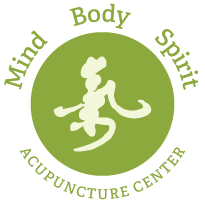How Acupuncture Treats Autoimmune Disorders
According to Oriental medicine, autoimmune disorders occur when there is imbalance within the body. Imbalance can come from an excess or deficiency of Yin and Yang that disrupts the flow of Qi, or vital energy, through the body. Acupuncture is used to help the body restore balance, treating the root of the disorder, while specifically addressing the symptoms that are unique to each individual.
Clinical research has shown that acupuncture causes physical responses in nerve cells, the pituitary gland, and parts of the brain. These responses can cause the body to release proteins, hormones, and brain chemicals that control a number of body functions. It is proposed that, by these actions, acupuncture affects blood pressure, body temperature and the immune system.
In addition to acupuncture, your treatment program to manage your autoimmune and endocrine disorders may involve a combination of therapies including stress reducing exercises, moderate physical activity, herbal medicine, nutritional support and bodywork. To learn more about how acupuncture can safely and effectively be incorporated into care for people with an autoimmune disorder, please call for a consultation today.
Below we will breakdown the differences between Autoimmune and Endocrine Disorders, causes, treatments, nutrition and how Acupuncture and Chinese Herbal Medicine can be of benefit.
What specifically is an Autoimmune Disease?
Autoimmune disease – is a disease caused by the reaction of antibodies to substances occurring naturally in the body. This may be restricted to certain organs like the thyroid, or involve a particular tissue in different places of the body, like Rheumatoid Arthritis which affects the cartilage in the joints particularly the fingers. Most people are aware of hypothyroidism and no that this is an auto immune disease but do you know that Type 1 Diabetes, multiple sclerosis, lupus, Addison’s disease, pernicious anemia, celiac disease, myasthenia gravis and Guillain–Barré syndrome – are also autoimmune diseases. Over 50 million Americans are affected by autoimmune diseases and many of these are genetic based diseases, meaning that this runs in the family.
The treatment of autoimmune diseases is typically with immunosuppression—medication that decreases the immune response. Due to the complexity of treating autoimmune disorders, integrative medicine solutions including acupuncture and Chinese medicine have received much attention as successful therapies in their treatment. Acupuncture is specifically noted for its use in pain relief, regulating the immune system, managing auto immune symptoms and improving quality of life.
What Causes Autoimmune Disease?
The exact mechanisms causing these changes are not completely understood, but bacteria, viruses, toxins, and some drugs may play a role in triggering an autoimmune process in someone who already has a genetic (inherited) predisposition to develop such a disorder. It is theorized that the inflammation initiated by these agents, toxic or infectious, somehow provokes in the body a “sensitization” (autoimmune reaction) in the involved tissues. As the disease develops, vague symptoms start to appear, such as joint and muscle pain, general muscle weakness, possible rashes or low-grade fever, trouble concentrating, or weight loss.
The following symptoms may also indicate that something is wrong with the immune system:
- numbness and tingling in hands and feet
- dry eyes
- hair loss
- shortness of breath
- heart palpitations
- Repeated miscarriages.
6 Food Tips for Autoimmune Disorders A class of plant chemicals — known as bioflavonoids — has been found to dramatically reduce inflammation and improve symptoms associated with autoimmune disorders.
- Tea: Both green and black tea contain the flavonoids catechins and theaflavins, which are beneficial in autoimmune disease.
- Apples: Apples (with the skin on), contain the flavonoid quercetin, which can reduce allergic reactions and decrease inflammation. Quercetin also occurs naturally in other foods, such as berries, red grapes, red onions, capers, and black tea.
- Carrots: Carotenoids are a family of plant pigments that include beta-carotene. A lack of carotenoids in the diet is thought to promote inflammation. Good sources of carotenoids include apricots, carrots, pumpkin, sweet potato, spinach, kale, butternut squash, and collard greens.
- Ginger: Recent studies show that ginger reduces inflammation by inhibiting prostaglandin and suppresses the immune system’s production of pro-inflammatory cytokines and chemokines, reducing disease severity in patients with rheumatoid arthritis.
- Omega-3: Omega-3 essential fatty acids can counter the formation of chemicals that cause inflammation. Good natural sources include flaxseed oil and salmon.
- Fiber: A healthy and active colon can decrease food sensitivity, which, in turn, can lighten the burden on your immune system.

